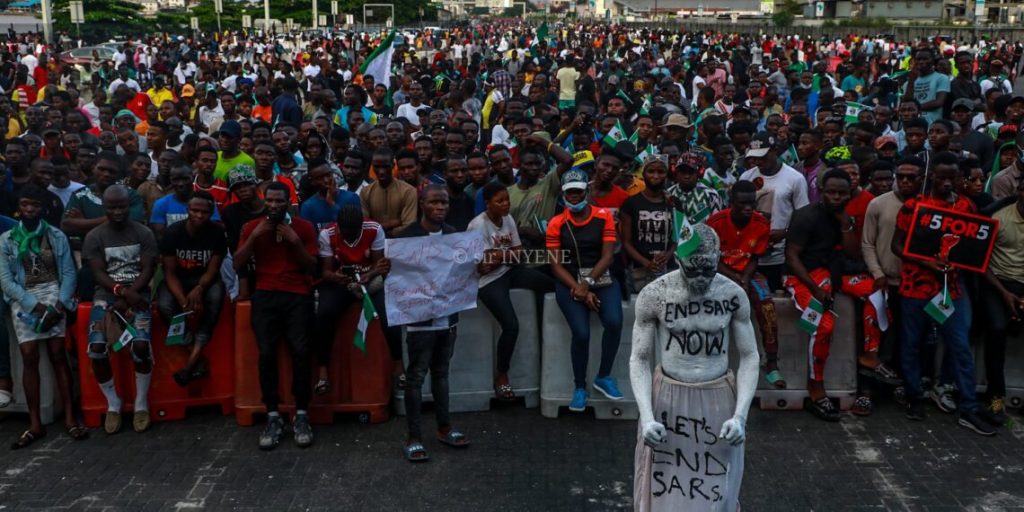It has been three years since Nigerians took to the streets in massive protests against police brutality, specifically targeting the notorious Special Anti-Robbery Squad (SARS) unit of the Nigerian Police.
The #EndSARS movement was a powerful expression of the people’s collective demand for justice, accountability, and an end to a deeply rooted culture of abuse by those entrusted with their safety.
As we reflect on this pivotal moment in Nigeria’s history, it is crucial to assess the progress and challenges that persist.
The #EndSARS protests were ignited by years of pent-up frustration with a police unit infamous for its inhumane treatment and blatant violations of citizens’ rights.
The movement demanded the dissolution of SARS and comprehensive police reform to address the deeply entrenched issues. At the heart of these protests was a genuine cry for a safer, more just society for all Nigerians.
One of the most harrowing incidents during these protests was the Lekki Massacre. On the night of October 20, 2020, peaceful protesters at the Lekki Toll Gate were met with armed military personnel who opened fire, leading to numerous casualties. This tragic event sent shockwaves through the nation and beyond.
The disbandment of SARS
In response to the protests and the Lekki Massacre, the Nigerian government disbanded SARS and initiated various investigative panels to address the demands of the #EndSARS movement. These panels were tasked with investigating police brutality cases, compensating victims, and proposing necessary reforms.
The findings of these panels were stark and undeniable: a massacre had taken place at Lekki, and both the army and the police were responsible for shooting at protesters. Despite this revelation, significant issues remain unresolved.
While the Lagos state government’s panel issued a public report, it is uncertain whether its recommendations have been implemented. This lack of transparency and progress is symbolic of the broader challenge in Nigeria: demanding change is one thing but achieving it in a system resistant to reform is another.
Victims still suffering
To date, compensation for victims of police brutality has been minimal, and many are still suffering in silence. A report by Amnesty International revealed that 40 Nigerians who participated in the #EndSARS protests remain detained, some in poor health, without trial, in violation of their rights and the constitution.
No one knows how many people have been violated or brutalized by SARS officers since the unit’s inception in 1992.
Despite numerous reform promises, there is no real data on how many officers have been charged and sentenced for their crimes.
SARS was disbanded early in the protests, giving the impression of a quick and easy victory. But the Special Weapons and Tactics Team, to which SARS officers were invited to apply, took its place, a rebranding that clearly failed to address the underlying issue.
The demands of the #EndSARS movement are yet to be fully met, and this is a concerning fact for the countless individuals who risked their lives and livelihoods to bring about change.
More is needed
The few positive changes resulting from the protests include greater awareness of police brutality and public outrage that has compelled the government to take some action.
Additionally, the protests galvanized Nigerian youths, sparking their interest in governance and social justice. The movement demonstrated the power of collective action and the role of a vigilant civil society in demanding accountability from the government.
Nevertheless, more is needed. Behavioral change within law enforcement agencies remains a pressing issue. To ensure that incidents like the Lekki Massacre are not repeated, it is crucial to reform the police, enforce accountability, and restore public trust in these institutions.
The #EndSARS movement was a pivotal moment in Nigeria’s history, and its demands for justice, accountability, and police reform must not be forgotten.
Three years on, the struggle against brutality continues. While there have been some changes, there is still a lot to be worked on as law enforcement agencies are still plagued with personnel who abuse the power vested in them.
